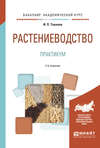Читать книгу: «Lord Tony's Wife: An Adventure of the Scarlet Pimpernel»
PROLOGUE
NANTES, 1789
I
"Tyrant! tyrant! tyrant!"
It was Pierre who spoke, his voice was hardly raised above a murmur, but there was such an intensity of passion expressed in his face, in the fingers of his hand which closed slowly and convulsively as if they were clutching the throat of a struggling viper, there was so much hate in those muttered words, so much power, such compelling and awesome determination that an ominous silence fell upon the village lads and the men who sat with him in the low narrow room of the auberge des Trois Vertus.
Even the man in the tattered coat and threadbare breeches, who – perched upon the centre table – had been haranguing the company on the subject of the Rights of Man, paused in his peroration and looked down on Pierre half afraid of that fierce flame of passionate hate which his own words had helped to kindle.
The silence, however, had only lasted a few moments, the next Pierre was on his feet, and a cry like that of a bull in a slaughter-house escaped his throat.
"In the name of God!" he shouted, "let us cease all that senseless talking. Haven't we planned enough and talked enough to satisfy our puling consciences? The time has come to strike, mes amis, to strike I say, to strike at those cursed aristocrats, who have made us what we are – ignorant, wretched, downtrodden – senseless clods to work our fingers to the bone, our bodies till they break so that they may wallow in their pleasures and their luxuries! Strike, I say!" he reiterated while his eyes glowed and his breath came and went through his throat with a hissing sound. "Strike! as the men and women struck in Paris on that great day in July. To them the Bastille stood for tyranny, and they struck at it as they would at the head of a tyrant – and the tyrant cowered, cringed, made terms – he was frightened at the wrath of the people! That is what happened in Paris! That is what must happen in Nantes. The château of the duc de Kernogan is our Bastille! Let us strike at it to-night, and if the arrogant aristocrat resists, we'll raze his house to the ground. The hour, the day, the darkness are all propitious. The arrangements hold good. The neighbours are ready. Strike, I say!"
He brought his hard fist crashing down upon the table, so that mugs and bottles rattled: his enthusiasm had fired all his hearers: his hatred and his lust of revenge had done more in five minutes than all the tirades of the agitators sent down from Paris to instil revolutionary ideas into the slow-moving brains of village lads.
"Who will give the signal?" queried one of the older men quietly.
"I will!" came a lusty response from Pierre.
He strode to the door, and all the men jumped to their feet, ready to follow him, dragged into this hot-headed venture by the mere force of one man's towering passion. They followed Pierre like sheep – sheep that have momentarily become intoxicated – sheep that have become fierce – a strange sight truly – and yet one that the man in the tattered coat who had done so much speechifying lately, watched with eager interest and presently related with great wealth of detail to M. de Mirabeau the champion of the people.
"It all came about through the death of a pair of pigeons," he said.
The death of the pigeons, however, was only the spark which set all these turbulent passions ablaze. They had been smouldering for half a century, and had been ready to burst into flames for the past decade.
Antoine Melun, the wheelwright, who was to have married Louise, Pierre's sister, had trapped a pair of pigeons in the woods of M. le duc de Kernogan. He had done it to assert his rights as a man – he did not want the pigeons. Though he was a poor man, he was no poorer than hundreds of peasants for miles around: but he paid imposts and taxes until every particle of profit which he gleaned from his miserable little plot of land went into the hands of the collectors, whilst M. le duc de Kernogan paid not one sou towards the costs of the State, and he had to live on what was left of his own rye and wheat after M. le duc's pigeons had had their fill of them.
Antoine Melun did not want to eat the pigeons which he had trapped, but he desired to let M. le duc de Kernogan know that God and Nature had never intended all the beasts and birds of the woods to be the exclusive property of one man, rather than another. So he trapped and killed two pigeons and M. le duc's head-bailiff caught him in the act of carrying those pigeons home.
Whereupon Antoine was arrested for poaching and thieving: he was tried at Nantes under the presidency of M. le duc de Kernogan, and ten minutes ago, while the man in the tattered coat was declaiming to a number of peasant lads in the coffee-room of the auberge des Trois Vertus on the subject of their rights as men and citizens, some one brought the news that Antoine Melun had just been condemned to death and would be hanged on the morrow.
That was the spark which had fanned Pierre Adet's hatred of the aristocrats to a veritable conflagration: the news of Antoine Melun's fate was the bleat which rallied all those human sheep around their leader. For Pierre had naturally become their leader because his hatred of M. le duc was more tangible, more powerful than theirs. Pierre had had more education than they. His father, Jean Adet the miller, had sent him to a school in Nantes, and when Pierre came home M. le curé of Vertou took an interest in him and taught him all he knew himself – which was not much – in the way of philosophy and the classics. But later on Pierre took to reading the writings of M. Jean-Jacques Rousseau and soon knew the Contrat Social almost by heart. He had also read the articles in M. Marat's newspaper L'ami du Peuple! and, like Antoine Melun, the wheelwright, he had got it into his head that it was not God, nor yet Nature who had intended one man to starve while another gorged himself on all the good things of this world.
He did not, however, speak of these matters, either to his father or to his sister or to M. le curé, but he brooded over them, and when the price of bread rose to four sous he muttered curses against M. le duc de Kernogan, and when famine prices ruled throughout the district those curses became overt threats; and by the time that the pinch of hunger was felt in Vertou Pierre's passion of fury against the duc de Kernogan had turned to a frenzy of hate against the entire noblesse of France.
Still he said nothing to his father, nothing to his mother and sister. But his father knew. Old Jean would watch the storm-clouds which gathered on Pierre's lowering brow; he heard the muttered curses which escaped from Pierre's lips whilst he worked for the liege-lord whom he hated. But Jean was a wise man and knew how useless it is to put out a feeble hand in order to stem the onrush of a torrent. He knew how useless are the words of wisdom from an old man to quell the rebellious spirit of the young.
Jean was on the watch. And evening after evening when the work on the farm was done, Pierre would sit in the small low room of the auberge with other lads from the village talking, talking of their wrongs, of the arrogance of the aristocrats, the sins of M. le duc and his family, the evil conduct of the King and the immorality of the Queen: and men in ragged coats and tattered breeches came in from Nantes, and even from Paris, in order to harangue these village lads and told them yet further tales of innumerable wrongs suffered by the people at the hands of the aristos, and stuffed their heads full of schemes for getting even once and for all with those men and women who fattened on the sweat of the poor and drew their luxury from the hunger and the toil of the peasantry.
Pierre sucked in these harangues through every pore: they were meat and drink to him. His hate and passions fed upon these effusions till his whole being was consumed by a maddening desire for reprisals, for vengeance – for the lust of triumph over those whom he had been taught to fear.
And in the low, narrow room of the auberge the fevered heads of village lads were bent together in conclave, and the ravings and shoutings of a while ago were changed to whisperings and low murmurings behind barred doors and shuttered windows. Men exchanged cryptic greetings when they met in the village street, enigmatical signs passed between them while they worked: strangers came and went at dead of night to and from the neighbouring villages. M. le duc's overseers saw nothing, heard nothing, guessed nothing. M. le curé saw much and old Jean Adet guessed a great deal, but they said nothing, for nothing then would have availed.
Then came the catastrophe.
II
Pierre pushed open the outer door of the auberge des Trois Vertus and stepped out under the porch. A gust of wind caught him in the face. The night, so the chronicles of the time tell us, was as dark as pitch: on ahead lay the lights of the city flickering in the gale: to the left the wide tawny ribbon of the river wound its turbulent course toward the ocean, the booming of the waters swollen by the recent melting of the snow sounded like the weird echoes of invisible cannons far away.
Without hesitation Pierre advanced. His little troop followed him in silence. They were a little sobered now that they came out into the open and that the fumes of cider and of hot, perspiring humanity no longer obscured their vision or inflamed their brain.
They knew whither Pierre was going. It had all been pre-arranged – throughout this past summer, in the musty parlour of the auberge, behind barred doors and shuttered windows – all they had to do was to follow Pierre, whom they had tacitly chosen as their leader. They walked on behind him, their hands buried in the pockets of their thin, tattered breeches, their heads bent forward against the fury of the gale.
Pierre made straight for the mill – his home – where his father lived and where Louise was even now crying her eyes out because Antoine Melun, her sweetheart, had been condemned to be hanged for killing two pigeons.
At the back of the mill was the dwelling house and beyond it a small farmery, for Jean Adet owned a little bit of land and would have been fairly well off if the taxes had not swallowed up all the money that he made out of the sale of his rye and his hay. Just here the ground rose sharply to a little hillock which dominated the flat valley of the Loire and commanded a fine view over the more distant villages.
Pierre skirted the mill and without looking round to see if the others followed him he struck squarely to the right up a narrow lane bordered by tall poplars, and which led upwards to the summit of the little hillock around which clustered the tumble-down barns of his father's farmery.
The gale lashed the straight, tall stems of the poplars until they bent nearly double, and each tiny bare twig sighed and whispered as if in pain. Pierre strode on and the others followed in silence. They were chilled to the bone under their scanty clothes, but they followed on with grim determination, set teeth, and anger and hate seething in their hearts.
The top of the rising ground was reached. It was pitch dark, and the men when they halted fell up against one another trying to get a foothold on the sodden ground. But Pierre seemed to have eyes like a cat. He only paused one moment to get his bearings, then – still without a word – he set to work. A large barn and a group of small circular straw ricks loomed like solid masses out of the darkness – black, silhouetted against the black of the stormy sky. Pierre turned toward the barn: those of his comrades who were in the forefront of the small crowd saw him disappearing inside one of those solid shadowy masses that looked so ghostlike in the night.
Anon those who watched and who happened to be facing the interior of the barn saw sparks from a tinder flying in every direction: the next moment they could see Pierre himself quite clearly. He was standing in the middle of the barn and intent on lighting a roughly-fashioned torch with his tinder: soon the resin caught a spark and Pierre held the torch inclined toward the ground so that the flames could lick their way up the shaft. The flickering light cast a weird glow and deep grotesque shadows upon the face and figure of the young man. His hair, lanky and dishevelled, fell over his eyes; his mouth and jaw, illumined from below by the torch, looked unnaturally large, and showed his teeth gleaming white, like the fangs of a beast of prey. His shirt was torn open at the neck, and the sleeves of his coat were rolled up to the elbow. He seemed not to feel either the cold from without or the scorching heat of the flaming torch in his hand. But he worked deliberately and calmly, without haste or febrile movements: grim determination held his excitement in check.
At last his work was done. The men who had pressed forward, in order to watch him, fell back as he advanced, torch in hand. They knew exactly what he was going to do, they had thought it all out, planned it, spoken of it till even their unimaginative minds had visualised this coming scene with absolutely realistic perception. And yet, now that the supreme hour had come, now that they saw Pierre – torch in hand – prepared to give the signal which would set ablaze the seething revolt of the countryside, their heart seemed to stop its beating within their body; they held their breath, their toil-worn hands went up to their throats as if to repress that awful choking sensation which was so like fear.
But Pierre had no such hesitations; if his breath seemed to choke him as it reached his throat, if it escaped through his set teeth with a strange whistling sound, it was because his excitement was that of a hungry beast who had sighted his prey and is ready to spring and devour. His hand did not shake, his step was firm: the gusts of wind caught the flame of his torch till the sparks flew in every direction and scorched his hair and his hands, and while the others recoiled he strode on, to the straw-rick that was nearest.
For one moment he held the torch aloft. There was triumph now in his eyes, in his whole attitude. He looked out into the darkness far away which seemed all the more impenetrable beyond the restricted circle of flickering torchlight. It seemed as if he would wrest from that inky blackness all the secrets which it hid – all the enthusiasm, the excitement, the passions, the hatred which he would have liked to set ablaze as he would the straw-ricks anon.
"Are you ready, mes amis?" he called.
"Aye! aye!" they replied – not gaily, not lustily, but calmly and under their breath.
One touch of the torch and the dry straw began to crackle; a gust of wind caught the flame and whipped it into energy; it crept up the side of the little rick like a glowing python that wraps its prey in its embrace. Another gust of wind, and the flame leapt joyously up to the pinnacle of the rick, and sent forth other tongues to lick and to lick, to enfold the straw, to devour, to consume.
But Pierre did not wait to see the consummation of his work of destruction. Already with a few rapid strides he had reached his father's second straw-rick, and this too he set alight, and then another and another, until six blazing furnaces sent their lurid tongues of flames, twisting and twirling, writhing and hissing through the stormy night.
Within the space of two minutes the whole summit of the hillock seemed to be ablaze, and Pierre, like a god of fire, torch in hand, seemed to preside over and command a multitude of ever-spreading flames to his will. Excitement had overmastered him now, the lust to destroy was upon him, and excitement had seized all the others too.
There was shouting and cursing, and laughter that sounded mirthless and forced, and calls to Pierre, and oaths of revenge. Memory, like an evil-intentioned witch, was riding invisibly in the darkness, and she touched each seething brain with her fever-giving wand. Every man had an outrage to remember, an injustice to recall, and strong, brown fists were shaken aloft in the direction of the château de Kernogan, whose lights glimmered feebly in the distance beyond the Loire.
"Death to the tyrant! A la lanterne les aristos! The people's hour has come at last! No more starvation! No more injustice! Equality! Liberty! A mort les aristos!"
The shouts, the curses, the crackling flames, the howling of the wind, the soughing of the trees, made up a confusion of sounds which seemed hardly of this earth; the blazing ricks, the flickering, red light of the flames had finally transformed the little hillock behind the mill into another Brocken on whose summit witches and devils do of a truth hold their revels.
"A moi!" shouted Pierre again, and he threw his torch down upon the ground and once more made for the barn. The others followed him. In the barn were such weapons as these wretched, penniless peasants had managed to collect – scythes, poles, axes, saws, anything that would prove useful for the destruction of the château de Kernogan and the proposed brow-beating of M. le duc and his family. All the men trooped in in the wake of Pierre. The entire hillock was now a blaze of light – lurid and red and flickering – alternately teased and fanned and subdued by the gale, so that at times every object stood out clearly cut, every blade of grass, every stone in bold relief, and in the ruts and fissures, every tiny pool of muddy water shimmered like strings of fire-opals: whilst at others, a pall of inky darkness, smoke-laden and impenetrable would lie over the ground and erase the outline of farm-buildings and distant mill and of the pushing and struggling mass of humanity inside the barn.
But Pierre, heedless of light and darkness, of heat or of cold, proceeded quietly and methodically to distribute the primitive implements of warfare to this crowd of ignorant men, who were by now over ready for mischief: and with every weapon which he placed in willing hands, he found the right words for willing ears – words which would kindle passion and lust of vengeance most readily where they lay dormant, or would fan them into greater vigour where they smouldered.
"For thee this scythe, Hector Lebrun," he would say to a tall, lanky youth whose emaciated arms and bony hands were stretched with longing toward the bright piece of steel; "remember last year's harvest, the heavy tax thou wert forced to pay, so that not one sou of profit went into thy pocket, and thy mother starved whilst M. le duc and his brood feasted and danced, and shiploads of corn were sunk in the Loire lest abundance made bread too cheap for the poor!
"For thee this pick-axe, Henri Meunier! Remember the new roof on thy hut, which thou didst build to keep the wet off thy wife's bed, who was crippled with ague – and the heavy impost levied on thee by the tax-collector for this improvement to thy miserable hovel.
"This pole for thee, Charles Blanc! Remember the beating administered to thee by the duc's bailiff for daring to keep a tame rabbit to amuse thy children!
"Remember! Remember, mes amis!" he added exultantly, "remember every wrong you have endured, every injustice, every blow! remember your poverty and his wealth, your crusts of dry bread and his succulent meals, your rags and his silks and velvets, remember your starving children and ailing mother, your care-laden wife and toil-worn daughters! Forget nothing, mes amis, to-night, and at the gates of the château de Kernogan demand of its arrogant owner wrong for wrong and outrage for outrage."
A deafening cry of triumph greeted this peroration, scythes and sickles and axes and poles were brandished in the air and several scores of hands were stretched out to Pierre and clasped in this newly-formed bond of vengeful fraternity.
III
Then it was that with vigorous play of the elbows, Jean Adet, the miller, forced his way through the crowd till he stood face to face with his son.
"Unfortunate!" he cried, "what is all this? What dost thou propose to do? Whither are ye all going?"
"To Kernogan!" they all shouted in response.
"En avant, Pierre! we follow!" cried some of them impatiently.
But Jean Adet – who was a powerful man despite his years – had seized Pierre by the arm and dragged him to a distant corner of the barn:
"Pierre!" he said in tones of command, "I forbid thee in the name of thy duty and the obedience which thou dost owe to me and to thy mother, to move another step in this hot-headed adventure. I was on the high-road, walking homewards, when that conflagration and the senseless cries of these poor lads warned me that some awful mischief was afoot. Pierre! my son! I command thee to lay that weapon down."
But Pierre – who in his normal state was a dutiful son and sincerely fond of his father – shook himself free from Jean Adet's grasp.
"Father!" he said loudly and firmly, "this is no time for interference. We are all of us men here and know our own minds. What we mean to do to-night we have thought on and planned for weeks and months. I pray you, father, let me be! I am not a child and I have work to do."
"Not a child?" exclaimed the old man as he turned appealingly to the lads who had stood by, silent and sullen during this little scene. "Not a child? But you are all only children, my lads. You don't know what you are doing. You don't know what terrible consequences this mad escapade will bring upon us all, upon the whole village, aye! and the country-side. Do you suppose for one moment that the château of Kernogan will fall at the mercy of a few ignorant unarmed lads like yourselves? Why! four hundred of you would not succeed in forcing your way even as far as the courtyard of the palace. M. le duc has had wind for some time of your turbulent meetings at the auberge: he has kept an armed guard inside his castle yard for weeks past, a company of artillery with two guns hoisted upon his walls. My poor lads! you are running straight to ruin! Go home, I beg of you! Forget this night's escapade! Nothing but misery to you and yours can result from it."
They listened quietly, if surlily, to Jean Adet's impassioned words. Far be it from their thoughts to flout or to mock him. Paternal authority commanded respect even among the most rough; but they all felt that they had gone too far now to draw back: the savour of anticipated revenge had been too sweet to be forgone quite so readily, and Pierre with his vigorous personality, his glowing eloquence, his compelling power had more influence over them than the sober counsels of prudence and the wise admonitions of old Jean Adet. Not one word was spoken, but with an instinctive gesture every man grasped his weapon more firmly and then turned to Pierre, thus electing him their spokesman.
Pierre too had listened in silence to all that his father said, striving to hide the burning anxiety which was gnawing at his heart, lest his comrades allowed themselves to be persuaded by the old man's counsels and their ardour be cooled by the wise dictates of prudence. But when Jean Adet had finished speaking, and Pierre saw each man thus grasping his weapon all the more firmly and in silence, a cry of triumph escaped his lips.
"It is all in vain, father," he cried, "our minds are made up. A host of angels from heaven would not bar our way now to victory and to vengeance."
"Pierre!" admonished the old man.
"It is too late, my father," said Pierre firmly, "en avant, lads!"
"Yes! en avant! en avant!" assented some, "we have wasted too much time as it is."
"But, unfortunate lads," admonished the old man, "what are you going to do? – a handful of you – where are you going?"
"We go straight to the cross-roads now, father," said Pierre, firmly. "The firing of your ricks – for which I humbly crave your pardon – is the preconcerted signal which will bring the lads from all the neighbouring villages – from Goulaine and les Sorinières and Doulon and Tourne-Bride to our meeting place. Never you fear! There will be more than four hundred of us and a company of paid soldiers is not like to frighten us. Eh, lads?"
"No! no! en avant!" they shouted and murmured impatiently, "there has been too much talking already and we have wasted precious time."
"Pierre!" entreated the miller.
But no one listened to the old man now. A general movement down the hillock had already begun and Pierre, turning his back on his father, had pushed his way to the front of the crowd and was now leading the way down the slope. Up on the summit the fire was already burning low; only from time to time an imprisoned tongue of flame would dart out of the dying embers and leap fitfully up into the night. A dull red glow illumined the small farmery and the mill and the slowly moving mass of men along the narrow road, whilst clouds of black, dense smoke were tossed about by the gale. Pierre walked with head erect. He ceased to think of his father and he never looked back to see if the others followed him. He knew that they did: like the straw-ricks a while ago, they had become the prey of a consuming fire: the fire of their own passion which had caught them and held them and would not leave them now until their ardour was consumed in victory or defeat.
IV
M. le duc de Kernogan had just finished dinner when Jacques Labrunière, his head-bailiff, came to him with the news that a rabble crowd, composed of the peasantry of Goulaine and Vertou and the neighbouring villages, had assembled at the cross-roads, there held revolutionary speeches, and was even now marching toward the castle still shouting and singing and brandishing a miscellaneous collection of weapons chiefly consisting of scythes and axes.
"The guard is under arms, I imagine," was M. le duc's comment on this not altogether unforeseen piece of news.
"Everything is in perfect order," replied the head-bailiff cooly, "for the defence of M. le duc and his property – and of Mademoiselle."
M. le duc, who had been lounging in one of the big armchairs in the stately hall of Kernogan, jumped to his feet at these words: his cheeks suddenly pallid, and a look of deadly fear in his eyes.
"Mademoiselle," he said hurriedly, "by G – d, Labrunière, I had forgotten – momentarily – "
"M. le duc?" stammered the bailiff in anxious inquiry.
"Mademoiselle de Kernogan is on her way home – even now – she spent the day with Mme. le Marquise d'Herbignac – she was to return at about eight o'clock… If those devils meet her carriage on the road…"
"There is no cause for anxiety, M. le duc," broke in Labrunière hurriedly. "I will see that half a dozen men get to horse at once and go and meet Mademoiselle and escort her home…"
"Yes … yes … Labrunière," murmured the duc, who seemed very much overcome with terror now that his daughter's safety was in jeopardy, "see to it at once. Quick! quick! I shall wax crazy with anxiety."
While Labrunière ran to make the necessary arrangements for an efficient escort for Mademoiselle de Kernogan and gave the sergeant in charge of the posse the necessary directions, M. le duc remained motionless, huddled up in the capacious armchair, his head buried in his hand, shivering in front of the huge fire which burned in the monumental hearth, himself the prey of nameless, overwhelming terror.
He knew – none better – the appalling hatred wherewith he and all his family and belongings were regarded by the local peasantry. Astride upon his manifold rights – feudal, territorial, seignorial rights – he had all his life ridden roughshod over the prejudices, the miseries, the undoubted rights of the poor people, who were little better than serfs in the possession of the high and mighty duc de Kernogan. He also knew – none better – that gradually, very gradually it is true, but with unerring certainty, those same downtrodden, ignorant, miserable and half-starved peasants were turning against their oppressors, that riots and outrages had occurred in many rural districts in the North and that the insidious poison of social revolution was gradually creeping toward the South and West, and had already infected the villages and small townships which were situated quite unpleasantly close to Nantes and to Kernogan.
For this reason he had kept a company of artillery at his own expense inside the precincts of his château, and with the aristocrat's open contempt for this peasantry which it had not yet learned to fear, he had disdained to take further measures for the repression of local gatherings, and would not pay the village rabble the compliment of being afraid of them in any way.
But with his daughter Yvonne in the open roadway on the very night when an assembly of that same rabble was obviously bent on mischief, matters became very serious. Insult, outrage or worse might befall the proud aristocrat's only child, and knowing that from these people, whom she had been taught to look upon as little better than beasts, she could expect neither mercy nor chivalry, the duc de Kernogan within his unassailable castle felt for his daughter's safety the most abject, the most deadly fear which hath ever unnerved any man.
Labrunière a few minutes later did his best to reassure his master.
"I have ordered the men to take the best horses out of the stables, M. le duc," he said, "and to cut across the fields toward la Gramoire so as to intercept Mademoiselle's coach ere it reach the cross-roads. I feel confident that there is no cause for alarm," he added emphatically.
"Pray God you are right, Labrunière," murmured the duc feebly. "Do you know how strong the rabble crowd is?"
"No, Monseigneur, not exactly. Camille the under-bailiff, who brought me the news, was riding homewards across the meadows about an hour ago when he saw a huge conflagration which seemed to come from the back of Adet's mill: the whole sky has been lit up by a lurid light for the past hour, and I fancied myself that Adet's straw must be on fire. But Camille pushed his horse up the rising ground which culminates at Adet's farmery. It seems that he heard a great deal of shouting which did not seem to be accompanied by any attempt at putting out the fire. So he dismounted and led his horse round the hillock skirting Adet's farm buildings so that he should not be seen. Under cover of darkness he heard and saw the old miller with his son Pierre engaged in distributing scythes, poles and axes to a crowd of youngsters and haranguing them wildly all the time. He also heard Pierre Adet speak of the conflagration as a preconcerted signal, and say that he and his mates would meet the lads of the neighbouring villages at the cross-roads … and that four hundred of them would then march on Kernogan and pillage the castle."
Покупайте книги и получайте бонусы в Литрес, Читай-городе и Буквоеде.
Участвовать в бонусной программе




















